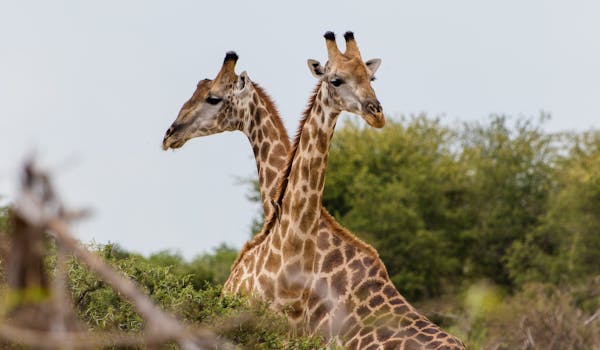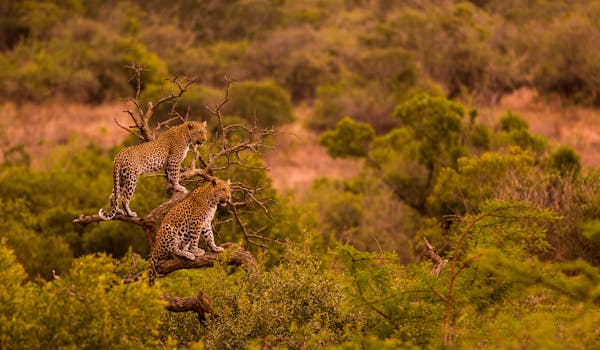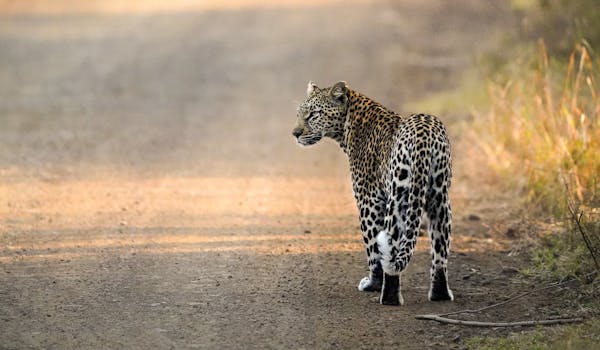Make it yours
Every experience is customised to be just right for you.

Phinda is one of the greatest success stories of African wildlife conservation and a trendsetter for modern wildlife management practices and research. Unlike many private safari reserves, most of the land is owned by the local community, which means everyone works together to protect the wildlife, and everyone benefits from the success.
Having previously been a patchwork of degraded farms, the land was returned to the local community (Phinda means ‘the return’ in Zulu) and converted to a wildlife conservancy. This community engagement, combined with a dedicated team of professional conservationists, has led to incredible success in managing thriving populations of rhino, lion, cheetah, elephant, pangolin and many other species. In fact, animals from Phinda are now helping to repopulate other regions in Africa.
Joining the research team, you’ll be part of this amazing story and support the management of the reserve’s thriving wildlife populations. You’ll also have the chance to monitor black rhino as part of the WWF Black Rhino Range Expansion Project.



Joining the wildlife management team at Phinda, you’ll experience life behind the scenes in one of the largest and most successful wildlife conservancies in South Africa and get insights into wildlife conservation that go far beyond the usual tourist experience.
You’ll contribute to the project team's vital conservation work. Depending on the priorities at the time, you could find yourself monitoring species such as lions and pangolins, measuring changes in elephant herd size, or observing a wildlife vet treating an injured cheetah.
Phinda’s success with anti-poaching means its growing rhino population is successfully being used to establish new populations across Africa. You’ll support the management of this critical rhino population and deter poachers through daily monitoring, and may observe or assist with periodic horn trimming.
In partnership with the Endangered Wildlife Trust (EWT) Cheetah Metapopulation Project, Phinda is working to ensure the long-term survival of these amazing predators. As a volunteer, you’ll support the project’s work to establish viable cheetah populations across a network of wildlife conservancies.
Phinda means "the return" in Zulu. Not only because wildlife have returned to the land, but a significant portion of the land has been returned to its ancestral owners. This is one of the most successful transitions of land and a true conservation success story.
Phinda’s team aren’t safari guides, they’re professional ecological monitors. Together, they carry an array of masters degrees and other natural sciences qualifications - and they’re passionate about sharing their knowledge and expertise.
Phinda works in partnership with the WWF, EWT, Panthera and the African Pangolin Working Group. Joining this project, you’ll support the long-term goals of these major international conservation organisations.
Phinda is situated within one of the world’s biodiversity hotspots known as the Maputaland Centre of Endemism. Boasting an unusually high number of unique species and rare ecosystems (including a critically endangered sand forest), it is an area of global importance for wildlife conservation.
You’ll get involved in every aspect of project life. Depending on the monitoring and conservation priorities at the time, this will include a range of the following activities.
To maintain the perfect balance of species within the reserve, Phinda’s conservationists keep a close watch on population numbers.
You will get to observe and assist:
You could also observe or assist:
Careful management of the wildlife is vital to Phinda’s conservation success and is scheduled at certain times throughout the year. Depending on the work that comes in and the requirements of the project, you could observe, assist or gain insights into:
You’ll learn about wildlife behaviour, biology, ecology, and conservation issues. Depending on the project’s work at the time, this will include a range of the following topics.
This project contributes to a variety of the UN’s Sustainable Development Goals. As part of the team, so will you.
The content of this publication has not been approved by the United Nations and does not reflect the views of the United Nations or its officials or Member States.

The land at Phinda is part-owned by local communities who are involved in the decision-making processes around how the land is managed and profit from the economic resources the reserve provides.

The project runs the 'Phinda Conservation Training Course' where members of the local communities learn employable skills in land and wildlife management and field guiding. Phinda also supports the education of local school children by building learning spaces and paying teacher salaries.
All learners have access to the same standard of education regardless of sex and background.

Phinda provides equal employment opportunities and women hold key leadership and decision-making roles. The centre also offers equal volunteering opportunities for women and men from outside the local community.

Phinda is increasing access to safe, affordable drinking water by supplying ‘hippo roller’ devices to local communities, which are used to safely transport drinking water. The project also uses an innovative rainwater collection system to provide the research team with safe drinking water.
Phinda is improving access to equitable sanitation by constructing washing facilities at schools and nurseries in the local community.

Phinda routinely employs young people between 15 and 24 and provides equal employment opportunities for local men and women. Volunteers provide both economic and physical support, which directly contributes to the protection of all the species in the reserve.

Due to the joint community ownership of the land at Phinda, the local community is empowered by decision-making processes at the reserve. While Phinda requires participants to pay for volunteering, they offer a reduced rate for South Africans to promote the inclusion of local people through their Bateleur Club.

Phinda builds sustainable and resilient buildings using materials that are locally sourced from within South Africa. The project also protects natural heritage through the conservation of iconic African species.

Phinda promotes responsible tourism in a variety of ways: through the creation of local jobs; via community work that sustains local cultures; by educating international and local visitors how to live in harmony with nature; and in its vital conservation work.

Phinda takes urgent action to halt biodiversity loss and prevent the extinction of threatened species. By monitoring and protecting a vast area of land that enables large animal populations to thrive, the project prevents the degradation of ecosystems in which these species play a crucial ecological role.
The reserve is a protected habitat where flora and fauna are allowed to flourish. The team at Phinda have been so successful at removing invasive species that the reserve is now only home to native species.

Phinda is well guarded by expert anti-poaching units. In combination with community vigilance, they have stopped poachers from being active within the reserve and eliminated the unethical practices associated with their activities.

Through Phinda’s partnership with us, they draw in financial resources that are used to fund conservation and provide support to their community partners in South Africa.
Related experiences
Explore programs similar to this one.

Visit three different projects in two countries to truly understand wildlife conservation in Africa
View details for From Famous Kruger To Remote Okavango
Explore a variety of animals in the Okavango Delta, home to the largest elephant population on Earth
View details for Okavango Wilderness Project
Get a unique behind the scenes experience in one of the largest and most important conservation areas in Africa
View details for The Vikela Kruger Conservation Experience
Go off the beaten track in a remote bush camp, and monitor lions, elephants and raptors
View details for Umsele Field Conservation Project - In Partnership With Balule & EWT